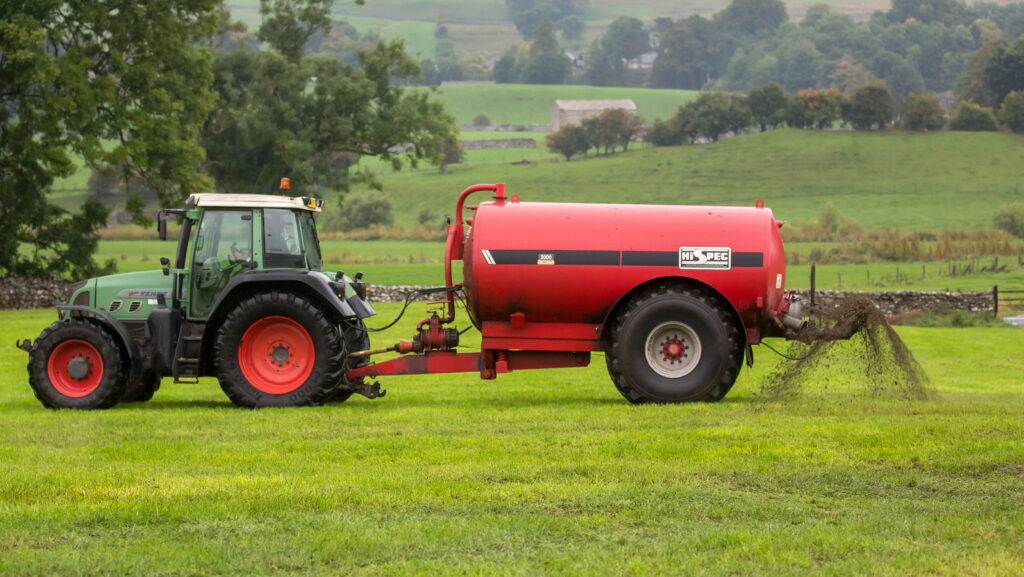‘Farming by the calendar’ frustrates Welsh farmers
 © Tim Scrivener
© Tim Scrivener Welsh farm leaders are demanding a “more targeted and proportionate regulatory approach” as frustration mounts over the lack of flexibility surrounding slurry spreading on dairy and livestock farms.
Under the terms of the Control of Agricultural Pollution Regulations, farmers are barred from spreading slurry between 15 October and 1 March in Wales.
See also: New Wales task and finish group to address agri-pollution
And even though the Welsh government has indicated it is keen to press on with implementing the recommendations from a review of the regulations published in March 2025, farmers continue to be hamstrung by what they see as “arbitrary” cut-off dates.
Speaking ahead of the annual Welsh Dairy Show, held at the Carmarthen Showground on Tuesday (28 October), NFU Cymru dairy board chairman Jonathan Wilkinson said frustration was a growing at the lack of progress.
“We recognise that our industry must play its part in making changes that bring about improvements to water quality where they are shown to be needed,” he said.
“But the ‘farming-by-calendar’ approach has again proven to be out of touch with the realities of farming in Wales.”
Delayed opportunity
After a hot, dry summer when grass growth was stunted, late September and early October was blessed with ideal grass growing conditions.
This allowed many farmers to take some much-needed late cuts of silage.
“However, this has delayed the opportunity to apply slurry prior to the arbitrary 15 October date for closed periods,” said Mr Wilkinson.
“Despite weather and soil conditions being favourable for slurry application for much of the period post-15 October, the closed period means farmers can no longer apply high-nitrogen manures.”
NFU Cymru’s water quality review group chairman Martin Griffiths said this was exactly the sort of issue highlighted by the union, following a survey of members last year, and fed into the statutory review of the regulations.
‘No further forward’
“Here we are more than six months on from the publication of the review, and we are no further forward with a more targeted and proportionate regulatory approach,” he said.
NFU Cymru also pointed to the high cost being imposed on farmers as they struggle to find the money needed to increase slurry storage capacity.
“A workable solution to the 170kg/ha organic nitrogen limit must be found, and support must be provided to enable farmers to make the investment in infrastructure that is now required on farm,” said Mr Griffiths.
Task force
NFU Cymru’s comments follow a written statement from deputy first minister Huw Irranca-Davies earlier this month, in which he said real improvements were needed quickly, both in relation to closed periods and organic nitrogen limits.
“I have asked my officials to establish a new task and finish group to engage on the recommendations and inform the development of proposals,” he said.
Rapid progress seems unlikely, however.
The group has yet to be formed and any proposals for substantive changes will require formal consultation and will need to be underpinned by the necessary impact assessments.
Meanwhile, the Welsh government has committed £1.58m for Natural Resources Wales enforcement operations, which target high-risk agricultural activities.
Officials are, however, being urged to ensure farms are not penalised where they have taken appropriate steps to mitigate the risks of pollution in challenging circumstances, such as being under TB movement restrictions.
